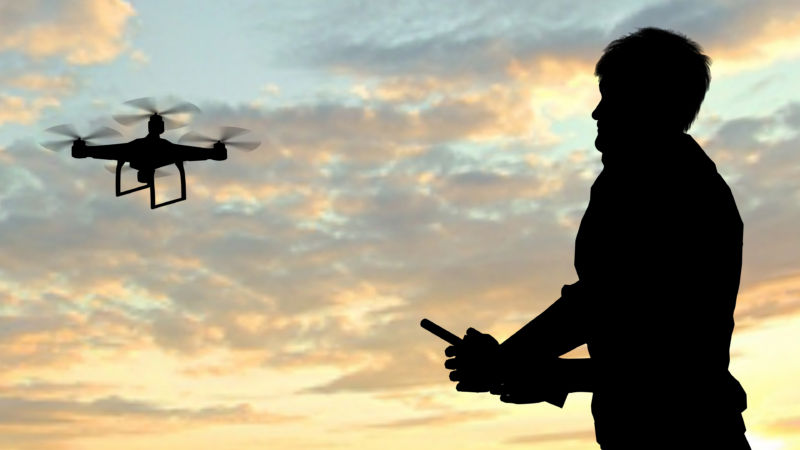
The bill appears to be in response to a number of reported incidents nationwide where property owners have taken matters into their own hands, shooting down drones that they believed were flying over their property. It was authored by Senator Ralph Shortey, a Republican who represents Canadian and Oklahoma counties.
The bill states:
Any person owning or controlling real estate or other premises who voluntarily damages or destroys a drone located on the real estate or premises or within the airspace of the real estate or premises not otherwise regulated by the Federal Aviation shall, together with any successors in interest, if any, not be civilly liable for causing the damage or destruction to the property of such person.
American law does not currently recognize the concept of aerial trespass. But as the consumer drone age has taken flight, legal scholars have increasingly wondered about this situation. The best case-law on the issue dates back to 1946, long before inexpensive consumer drones were technically feasible. That year, the Supreme Court ruled in a case known as United States v. Causby that a farmer in North Carolina could assert property rights up to 83 feet in the air.
However, there’s another large potential snag: the Federal Aviation Administration claims jurisdiction over all airspace, period, so the bill may not get off the ground. Plus, it is a federal crime to shoot at an aircraft, and drones are currently defined by the FAA as aircraft.
"The FAA is responsible for the safety and management of US airspace from the ground up," Les Dorr, an FAA spokesman told Ars in a 2015 statement.
On Tuesday, when Ars asked the FAA's position on this bill, Dorr said the agency couldn't comment on pending legislation, but he offered additional safety considerations."A private citizen shooting at any aircraft – including unmanned aircraft – poses a significant safety hazard," he e-mailed. "An unmanned aircraft hit by gunfire could crash, causing damage to persons or property on the ground, or it could collide with other objects in the air. Shooting at an unmanned aircraft could result in a civil penalty from the FAA and/or criminal charges filed by federal, state or local law enforcement."
A first?
Amanda Essex, a policy analyst with the National Conference of State Legislatures, indicated that she was unaware of any other state considering similar legislation.
"A couple of states passed legislation in 2016 that provides immunity for first responders who damage or disable a drone that is interfering with their emergency activities," she e-mailed. "California’s SB 807 (2016) provides immunity for first responders who damage a UAS that was interfering with them while they were providing emergency services. Similarly, Louisiana’s SB 73 (2016) allows law enforcement or fire department personnel to disable the UAS if it endangers the public or an officer’s safety. I am not aware of similar legislation that has been introduced this session."
Senate Bill 660 recently passed by a vote of 11-0 out of the Senate Judiciary Committee but has not yet been debated in either chamber of the full Oklahoma state legislature.
Senator Shortey, who did not immediately respond to Ars’ request for comment, told the Tulsa World newspaper on Monday that he expected the bill to be taken up by the full state senate "this week or next."
reader comments
159